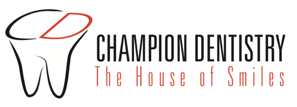Reasons Your Gums Might Be Bleeding – And What to Do About It
Blog Reasons Your Gums Might Be Bleeding – And What to Do About It
Your gums might be bleeding for several reasons. It could be something as simple as brushing too hard or a sign of gum disease. No matter the cause, stopping the bleeding and protecting your gums from further damage is essential. This blog post will discuss the causes of bleeding gums and how to treat them.
Gums bleeding can signify serious gum health issues, such as periodontal disease. But other causes may be behind your bleeding gums. Here are some possible reasons and treatments for your gingival bleeding:
1) Brushing Too Aggressively
Brushing too hard or using a toothbrush with stiff bristles can cause gum irritation and bleeding. Instead, try switching to a softer-bristled toothbrush and brushing with less pressure.
2) Plaque Buildup
If you don't brush and floss regularly, plaque can build up on your teeth and gums. That can cause bleeding when it is removed. Make sure to brush twice daily and floss at least once daily to prevent this buildup.
3) Poor Diet
Eating a poor diet with lots of sugary and acidic foods can make your gums more vulnerable to plaque, bacteria, and other irritants. Instead, increase the amount of fiber in your diet by eating more fruits, vegetables, and whole grains.
4) Hormonal Changes
Pregnancy or hormonal changes can make your gums more sensitive, leading to bleeding. If you are pregnant or undergoing hormonal changes, talk to your dentist about keeping your gums healthy.
5) Infection
Gingivitis is an infection of the gums that can cause redness, swelling, and bleeding. Visit a dentist for advice on how to treat gingivitis.
If your gums are bleeding, the first step is determining the cause so that you can take appropriate action. Then, talk to your dentist if it persists or becomes severe. With regular dental visits and proper oral hygiene, you can keep your gums healthy and prevent gum bleeding from occurring in the future.
How to Protect Yourself from Gum Disease
Gum disease, also known as periodontal disease, is a severe condition that can have long-term effects on oral and overall health. Fortunately, you can take steps to protect yourself from gum disease.
Brush twice daily with fluoride toothpaste. Brushing removes plaque and helps prevent tartar buildup. Make sure to brush for two minutes and use a soft-bristled toothbrush.
Floss at least once daily. Flossing removes plaque that accumulates between teeth, places your toothbrush can't reach. If you have difficulty using traditional floss, consider pre-strung or water flossers.
Visit your dentist for regular checkups and cleanings. Your dentist will be able to detect early signs of gum disease, as well as provide professional cleanings to remove plaque and tartar buildup.
Quit smoking or chewing tobacco if you use either of these products. Tobacco can cause inflammation in your gums and increase your risk of gum disease.
Maintain a healthy diet rich in vitamins and minerals. Foods high in calcium, such as dairy products and green leafy vegetables, help strengthen your teeth and gums.
By following these tips, you can effectively reduce your risk of developing gum disease. If you think you may already have gum disease, Contact Champion Dentistry right away for treatment. Early diagnosis and treatment are vital to controlling gum disease progression and protecting oral health. In addition, taking steps to protect yourself from gum disease can help ensure a healthy smile for years to come.

